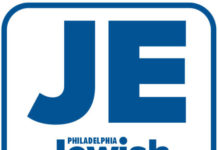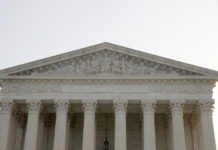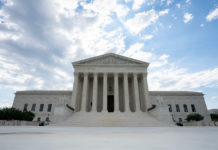
On June 21, the Supreme Court ruled 6-3 that states that use taxpayer dollars to provide tuition assistance to students attending nonreligious private schools must also use taxpayer dollars to provide assistance to students attending religious private schools.
The decision was met with support from Philadelphia day schools and Jewish education advocates, but it has garnered criticism from those worried about the separation between church and state.
The case, Carson v. Makin, originated in Maine, a rural state where over half the school districts do not have a public school option. As a result, the state relies on public schools outside a student’s school district or private schools to provide necessary education opportunities.
The ruling expands tuition assistance to religious schools that are “biblically based.” Majority opinion writer Chief Justice John Roberts said that denying tuition assistance to students looking to attend private religious schools is “discrimination against religion.”
“It removes any questions or potential challenges anyone might have brought against existing programs that support Jewish schools and other religious schools alongside other kinds of non-public schools,” said Nathan Diament, executive director of the Orthodox Union Advocacy Center, which oversees the Teach Coalition and Teach PA projects advocating for Jewish day schools.
The ruling is a reinforcement of the belief that government neutrality on religion and religious institutions is a threat to religious freedom, Diament said. He believes it bolsters previous government programs, such as the Nonprofit Security Grant Program, which the government also provides to religious institutions.
But nonprofit security grants and other assistance programs, despite their prominence in Jewish communities, haven’t been met with unanimous support, said Democratic Jewish Outreach Vice Chair Burt Siegel. Some Jews ideologically oppose auxiliary services to religious private schools, such as transportation services, claiming it is a violation of the First Amendment.
“More and more, we’re seeing a blurring of the lines” between church and state, Siegel said.
The Anti-Defamation League joined an amicus brief on Carson v. Makin in November stating that “the history of the Free Exercise Clause reflects it does not require states to fund religious education. To do so, would be an unwarranted and substantial expansion of the Free Exercise Clause contrary to the Court’s existing precedent.”
While Siegel believes the ruling is a slippery slope and that the current Supreme Court is dictated by ideology, Diament doesn’t see the ruling as a threat to the First Amendment.
“What the Establishment Clause, in particular, of the First Amendment was intended to ensure is that there is no preference by the government or one religion above all others,” Diament said.
In the case of Carson v. Makin, religious schools have equal opportunity to take advantage of tuition assistance programs, giving more opportunities for religious freedom, Diament argues.
For area Jewish day schools, the ruling is less of an ideological victory than a practical one.
“Any generosity of spirit and money is not only needed, but greatly appreciated,” said Besie Katz, the principal of Politz Hebrew Academy.
Katz hopes the ruling will not only take the burden off of day schools and parents looking to give their children a Jewish education, but will also open the door to more opportunities for financial assistance to religious private schools.
In the past, Politz wanted government assistance to fund a sign language interpreter. The government would only pay for the interpreter for their work in general studies classes, but not religion classes.
But the Jewish Federation now provides assistance to Jewish schools, Siegel argued, which can create a precedent for ways the Jewish community can increase financial support for religious schools.
“The lack of finances shouldn’t prevent a Jewish family from providing a day school education,” he said.
However, he argued that the power to provide tuition assistance should come from within the Jewish community, not from the government.
“It is a responsibility of our community, really, to make Jewish day school education affordable and available,” Siegel said.






